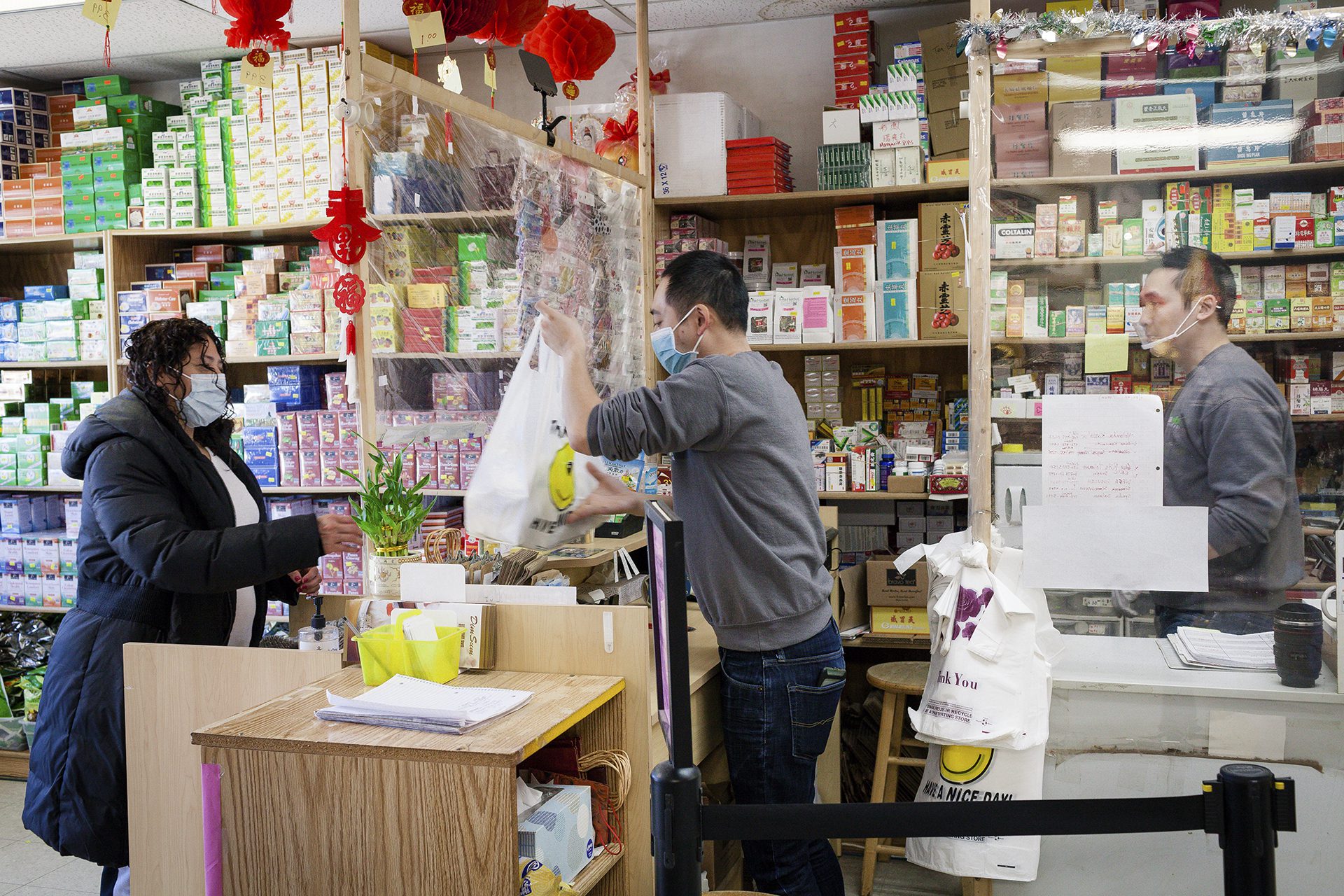 Michelle Kanaar/Borderless Magazine
Michelle Kanaar/Borderless MagazineAs misinformation about natural cures soars during the pandemic, trained herbalists in Chicago are educating vulnerable immigrant communities.
On a given day, you can find dozens of Middle Eastern and Latin American immigrants lined up to purchase herbs at a strip mall in the heart of Chicago’s Chinatown. Since the COVID-19 pandemic began, business has been booming at Lisa Herbal Corporation, one of the neighborhood’s most popular herbal shops, where a customer can choose from about 400 ingredients organized in filing drawers that resemble a library card catalog. These range from cinnamon for diabetes to turmeric for chronic back pain.
News that puts power under the spotlight and communities at the center.
Sign up for our free newsletter and get updates twice a week.
“Some people know about natural remedies, but they go to their doctor or the [hospital] to get treated for COVID-19,” said Lisa Lau, the store owner. “People who tested positive from the virus experience a shortness of breath even after leaving the hospital. They come to us with chest pain and [breathing issues], so we help them. We give the community the cheapest help and a sense of hope.”
COVID-19 has had a disparate impact on immigrant communities across the U.S., especially those who are low-income or undocumented. Poor access to health care, language barriers and a mistrust of the U.S. health care system has led many to seek out home remedies. This new interest has boosted the profiles of longtime herbal shop owners like Lau, who has practiced traditional Chinese medicine for 25 years. At the same time, the demand for COVID-19 cures has led to snake oil salesmen who capitalize on the popularity of alternative medicine and wellness culture.
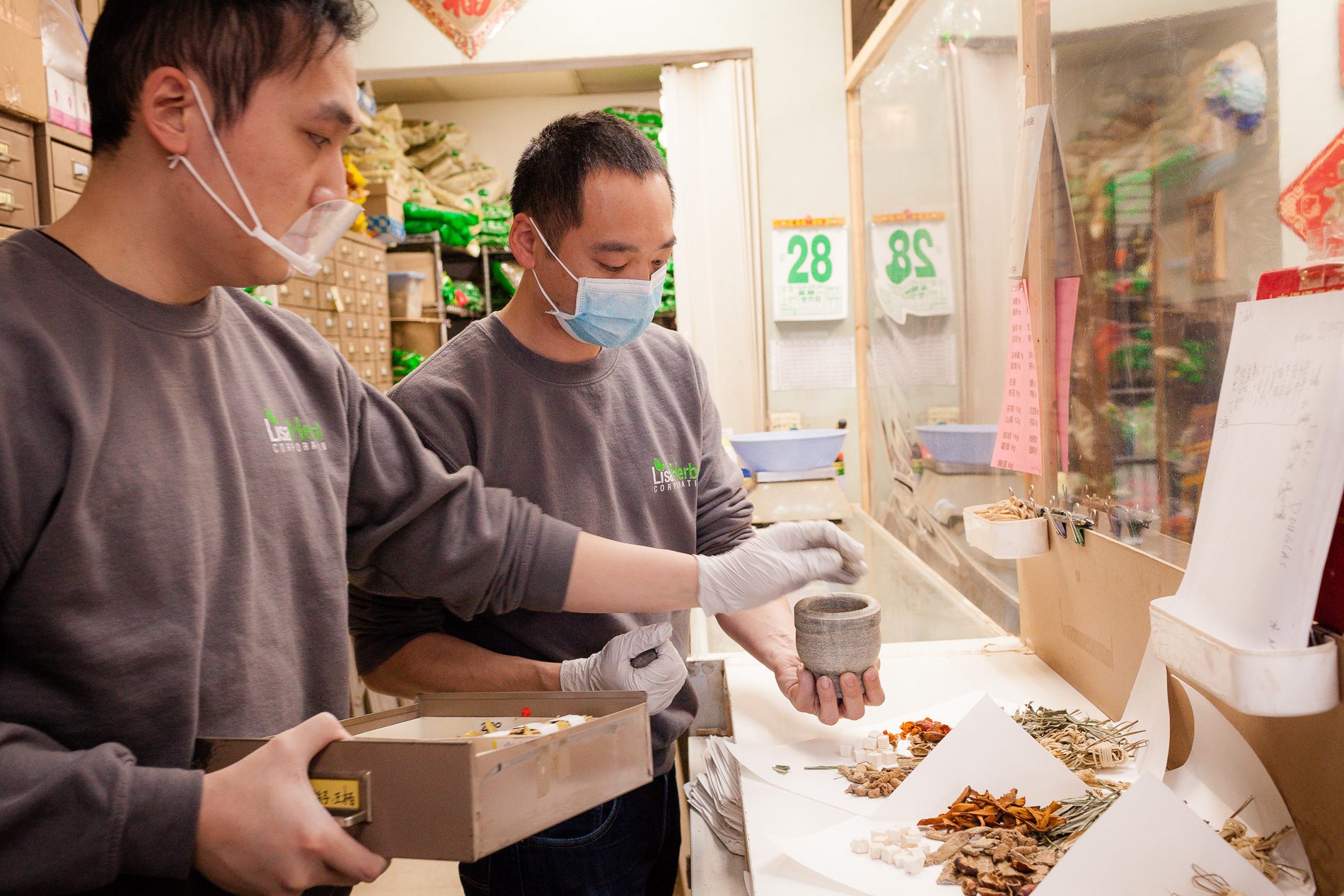
These unproven or sham treatments, some of which target immigrants and non-English speakers, can be dangerous. When based on real, ancestral ethnobotanical knowledge, misinformation about herbal cures amounts to what Indigenous scholars Rosalyn Lapier and Abaki Beck call “traditional knowledge malpractice.”
“That respect for herbs and what they can and cannot do for us — as well as an awareness of the time and attention it takes to understand when, how and why to process them into useful medicine — is important to remember right now,” Beck and Lapier, who are both Blackfeet and Métis, wrote in an op-ed for High Country News. “While herbal medicines may help address some symptoms of COVID-19 and are good for our overall health, at this time they cannot prevent, treat or cure coronavirus. And believing they could do so could have dire consequences for our communities.”
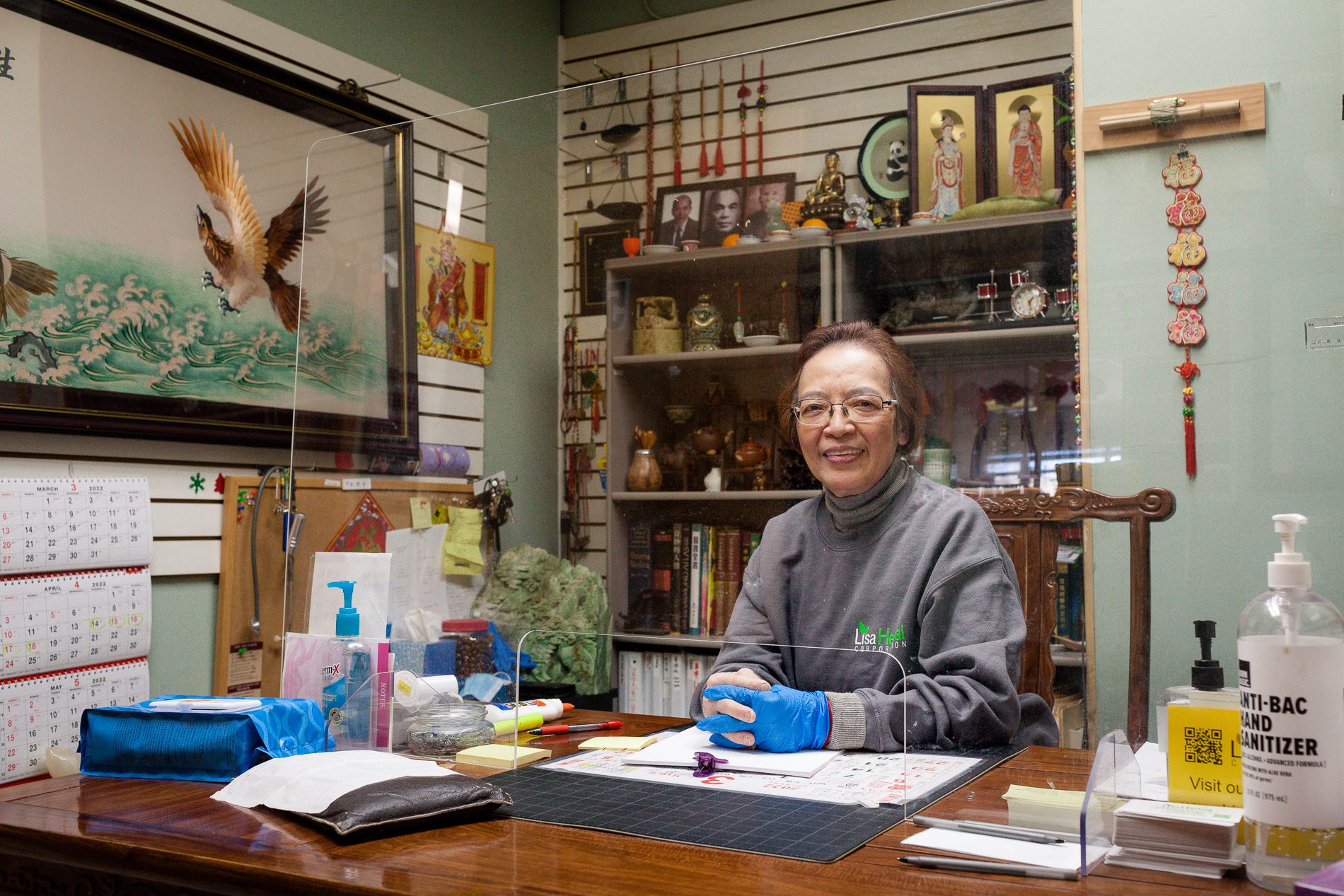
The misinformation around herbs means Lau’s role as an educator is more important than ever. As interest has grown in her concoction of traditional Chinese herbs to reduce fevers and improve breathing, such as Flos Farfarae (coltsfoot flowers) and Radix (the root of an orchid), she has emphasized that they do not serve as an alternative to doctor-prescribed medication. According to the U.S. Department of Health and Human Services, “no firm conclusions can be made about [Chinese herbal products] effectiveness.”
“The thing is some people do not need to give up on Western medicine,” Lau said. “You can combine [modern prescriptions] with [teas] and still speed up the recovery process. Depending on your underlying health condition, high blood pressure or diabetes, the herbs are there to support you along with [medication].”
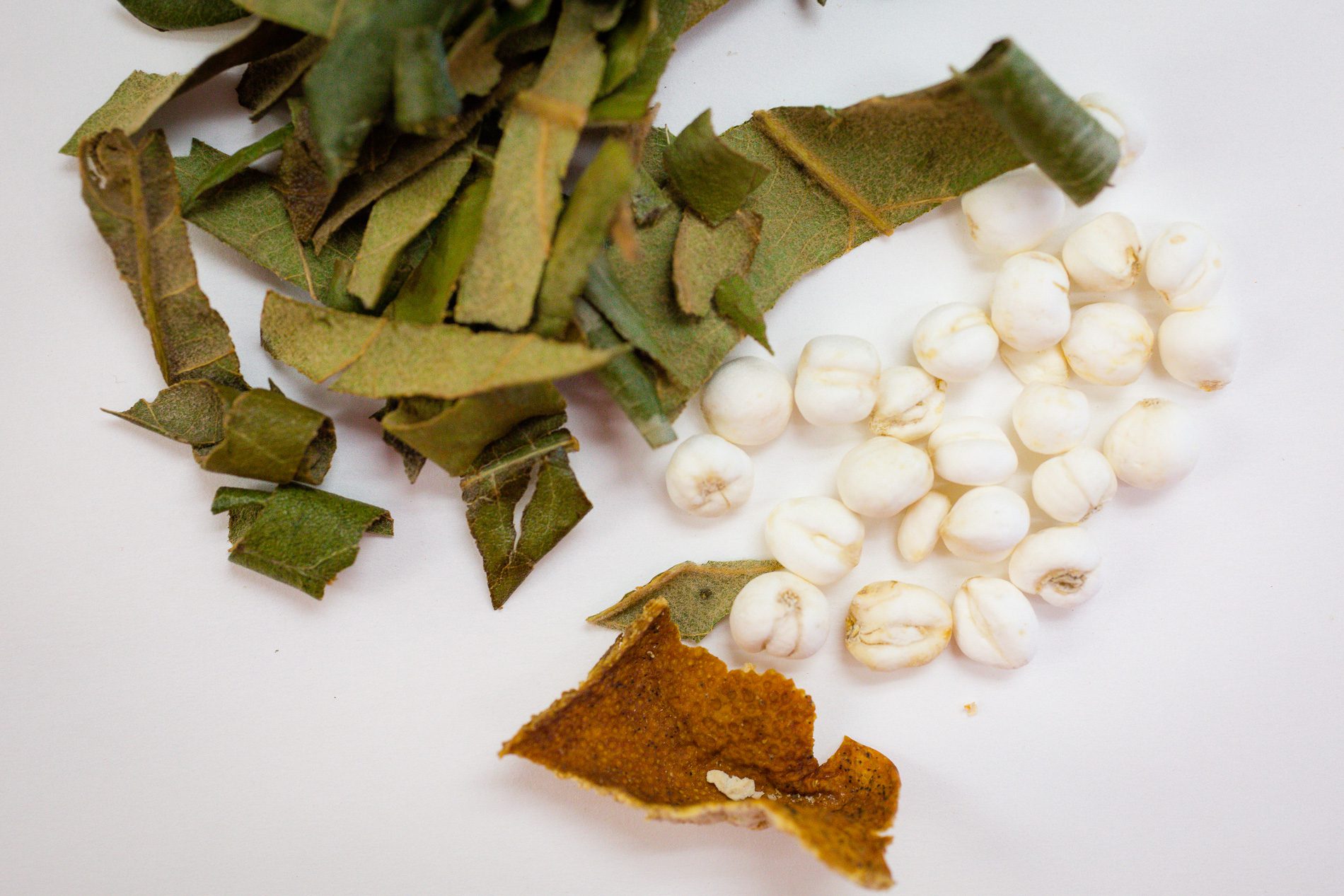
Lau’s herbal remedies, passed from generation to generation, reflect careful ancestral knowledge and development.
“My great-grandfather used to go up to a Chinese mountain and pick up herbs,” Lau said. “Later my grandfather went up a mountain to do the same thing. My father followed them, but his [herbal formula] improved. And with this generation, natural herbs have been modernized to fit everyone’s needs.”
In the 1970s, when Lau was 10 years old, her family immigrated to Chicago’s Chinatown. Over the years, she learned about new formulas and herbs as she got to know Hispanic and Middle Eastern communities in Chicago’s Little Village and the West Ridge neighborhoods. She continues to work as a herbal doctor today because she wants to use her own tea formulas to help underserved communities.
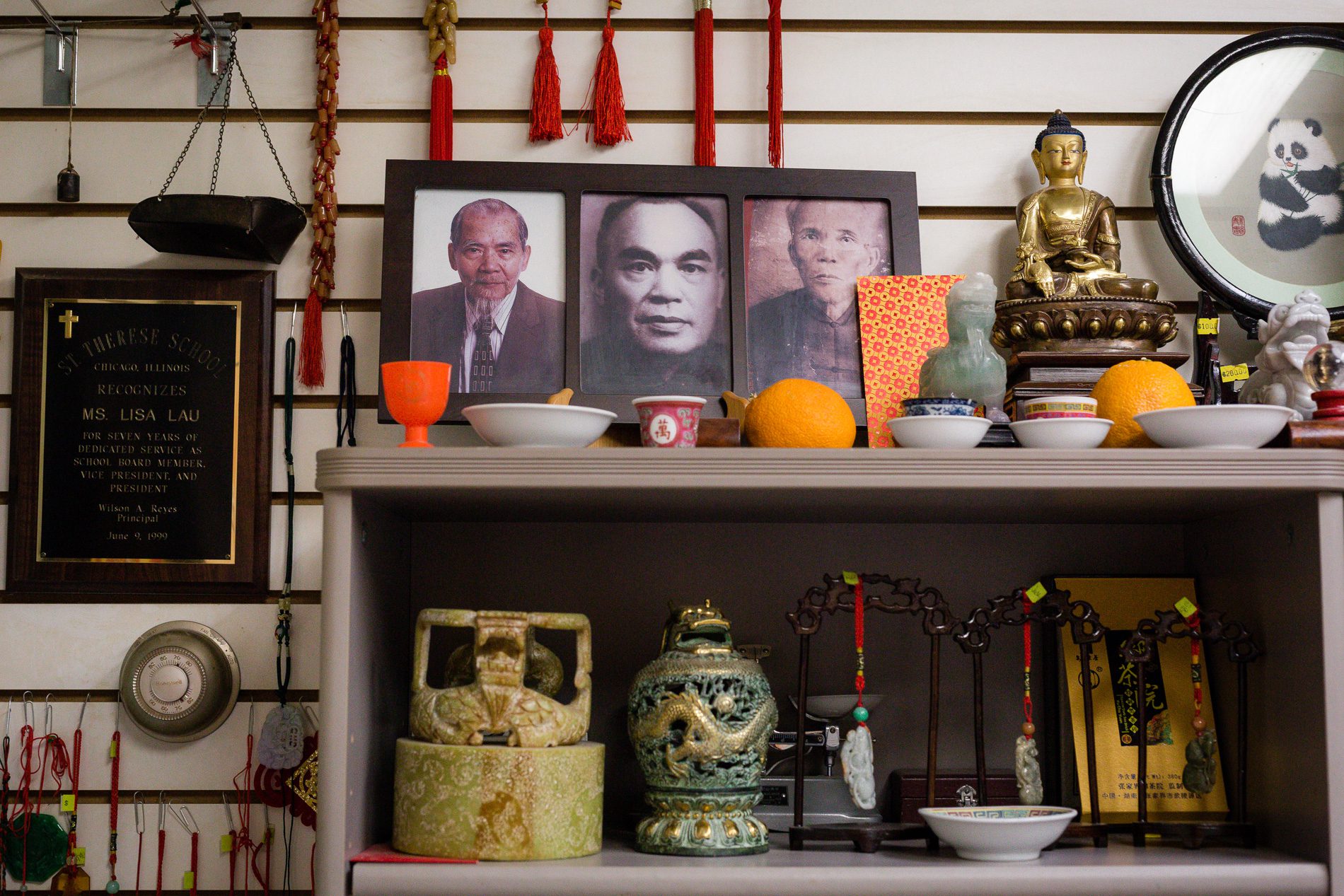
Among her customers is Demitri Svigos, a first-generation Greek American who runs Fresh Farm International Market in West Ridge. He visited Lau’s store to help him recover from an accident that led to bone and blood infections.
“I remember injecting myself in my heart five times a day for six months,” Svigos said. “Lisa Lau actually helped me reduce my blood infections by giving me natural remedies. I was throwing up every day from medications. And after three weeks of drinking her tea, it cleaned up my system.
“The more I educate myself about other cultures, I learn that some medication does not help me recover fast enough,” he added. “When Lisa mails me my herbal tea blend, I’ll just drink the tea every single morning before anything else.”
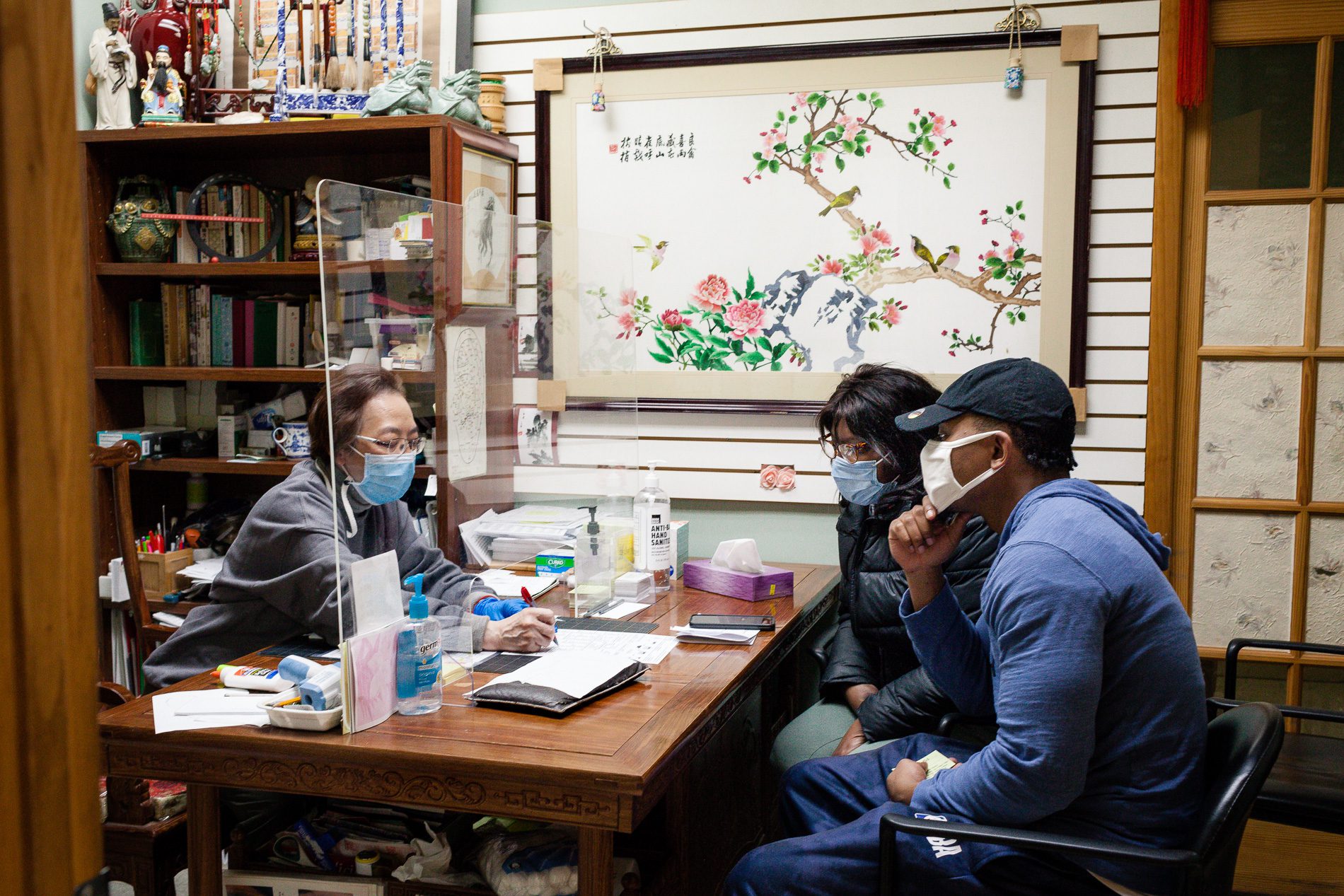
Another customer, Louise Holly, described how Lau’s herbs got rid of her abdominal pain. “I suffered for two years [being prescribed medications],” she said. “Doctors could not figure out what foods were causing the problem.” She drank herbal tea for six weeks, and the pain went away.
In Little Village, another well-known herb shop, La Botánica Guadalupana, has also seen an increase in customers seeking COVID-19 self-care. Many are from Latinx or immigrant families who live in the area.
“[The community] is scared of [going to the doctor] because they have said that a lot of people who’ve entered the hospital do not return to their homes,” store worker Maria Cruz said in Spanish. “They do not want to step inside a hospital and not be able to see their families ever again. When working throughout the pandemic, many people from the community have died from respiratory diseases caused by the virus. So that is one of the reasons why the community is scared of seeing a doctor today.”
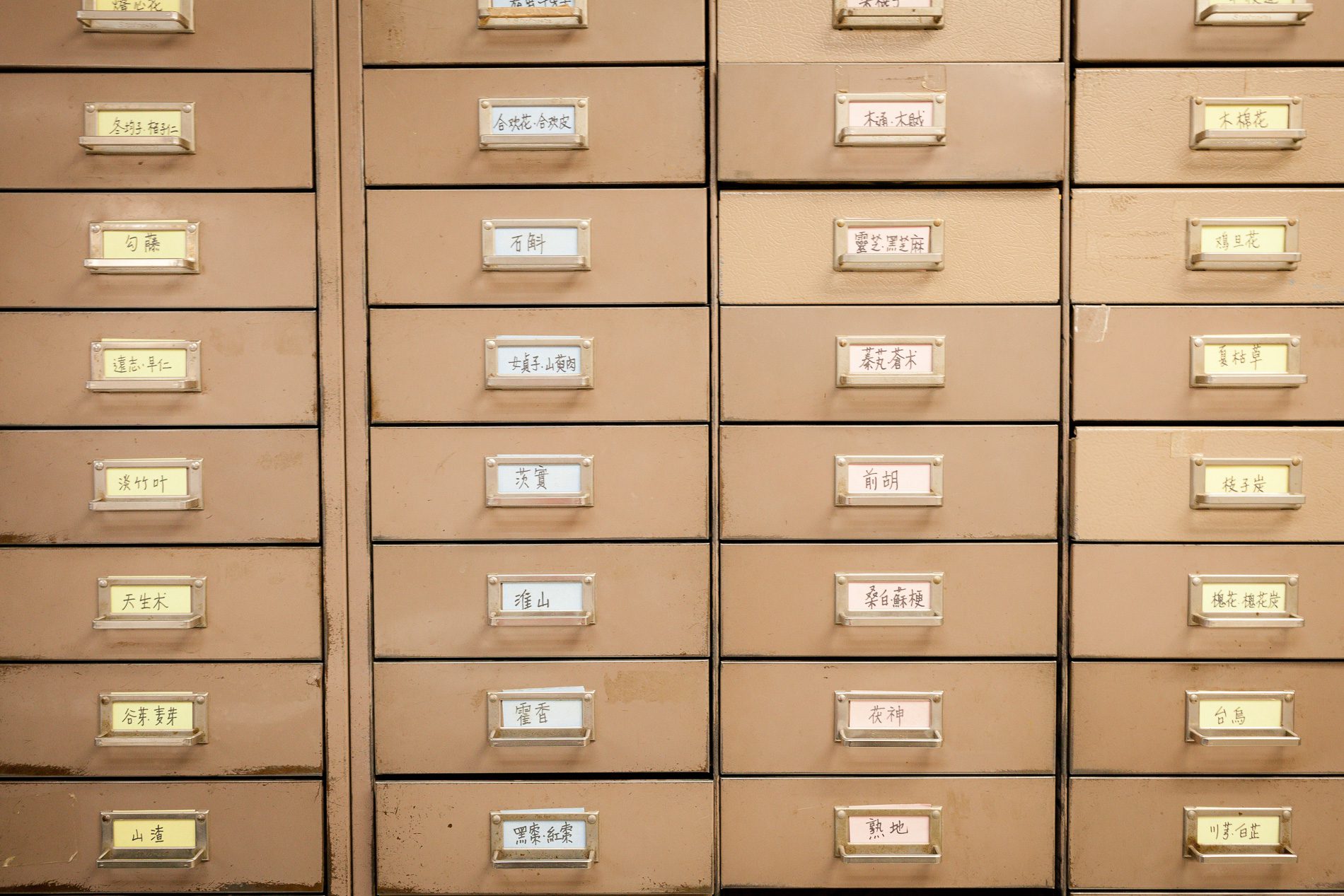
Cruz, who has worked at the store for 20 years, said the popularity of herbs has generally risen due to the pandemic. Part of this is because the Latinx community shares information on herbs through word of mouth or online. But the internet has also led to rampant misinformation about COVID-19 that has deepened the community’s fears. Cruz is addressing this by informing her customers on the effectiveness of herbs and has urged them to get their COVID-19 vaccine. Like Lau, she makes it clear that while herbs can help maintain one’s health, natural medicine should not interfere with medical protocols.
“In reality, there is no cure for the virus, and the pandemic might stay with us for some time,” Cruz said in Spanish. “So, herbs and Indigenous plants are helping people right now. COVID-19 symptoms are somewhat more intense than the flu. With herbs and medicine, it is possible to heal quicker.”
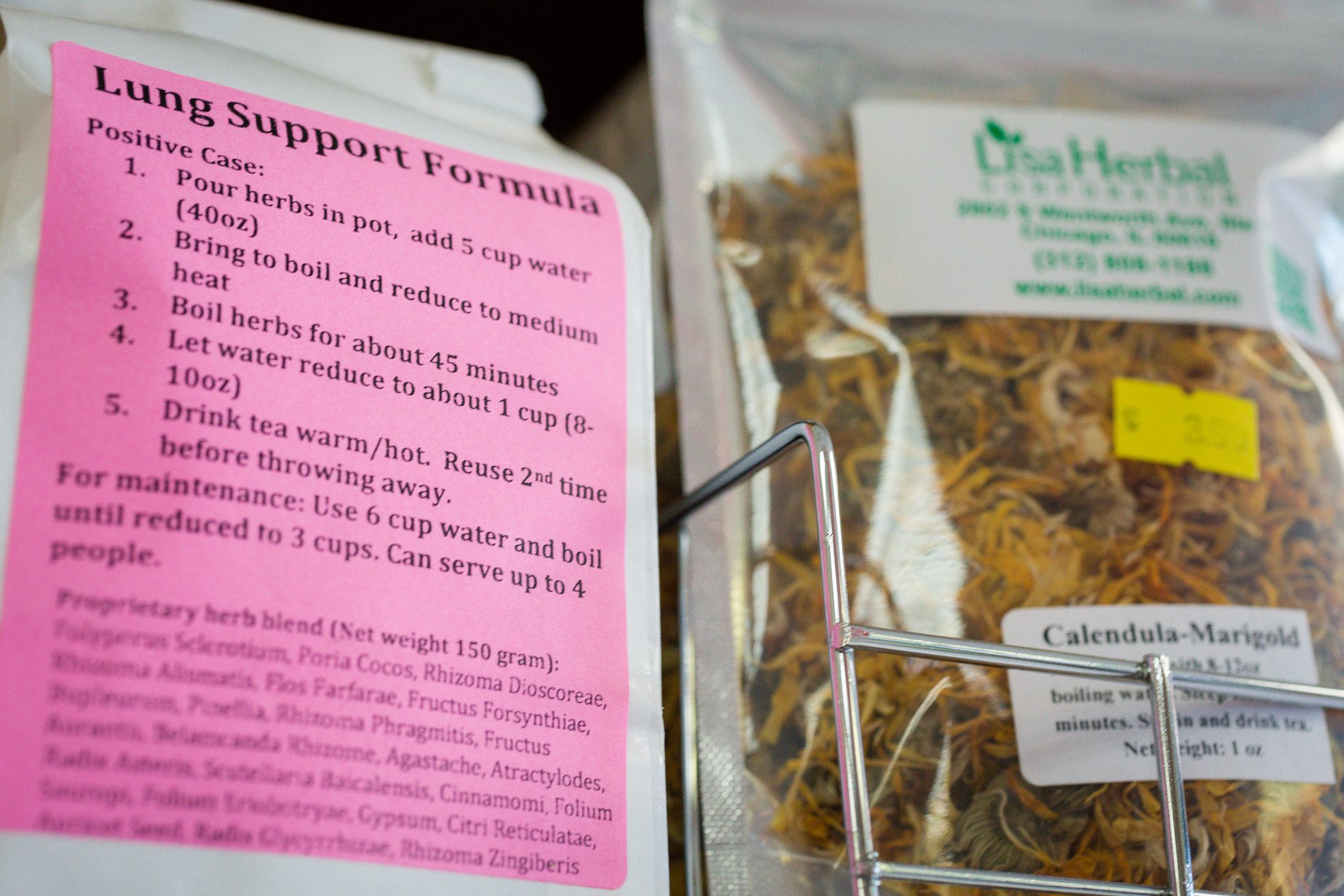
La Botánica Guadalupana supplies more than 200 kinds of herbs. Popular ones include eucalyptus and mullein flowers, both of which support the immune system and guard against respiratory diseases.
Customers can also purchase vitamins, tea blends and spiritual products. Cruz said that in addition to caring for their health, many regulars also want to do a spiritual cleansing, a Mexican tradition adopted from their Aztec ancestors that allows them to cure illnesses or remove negative energy.
“The store had a few things because we only offered herbs when we first started, but then the store evolved to a botánica,” a spiritual store that offers herbs and natural products, Cruz said in Spanish. “Because of these changes, other stores did the same and sold spiritual and herbal products to the Little Village community.”
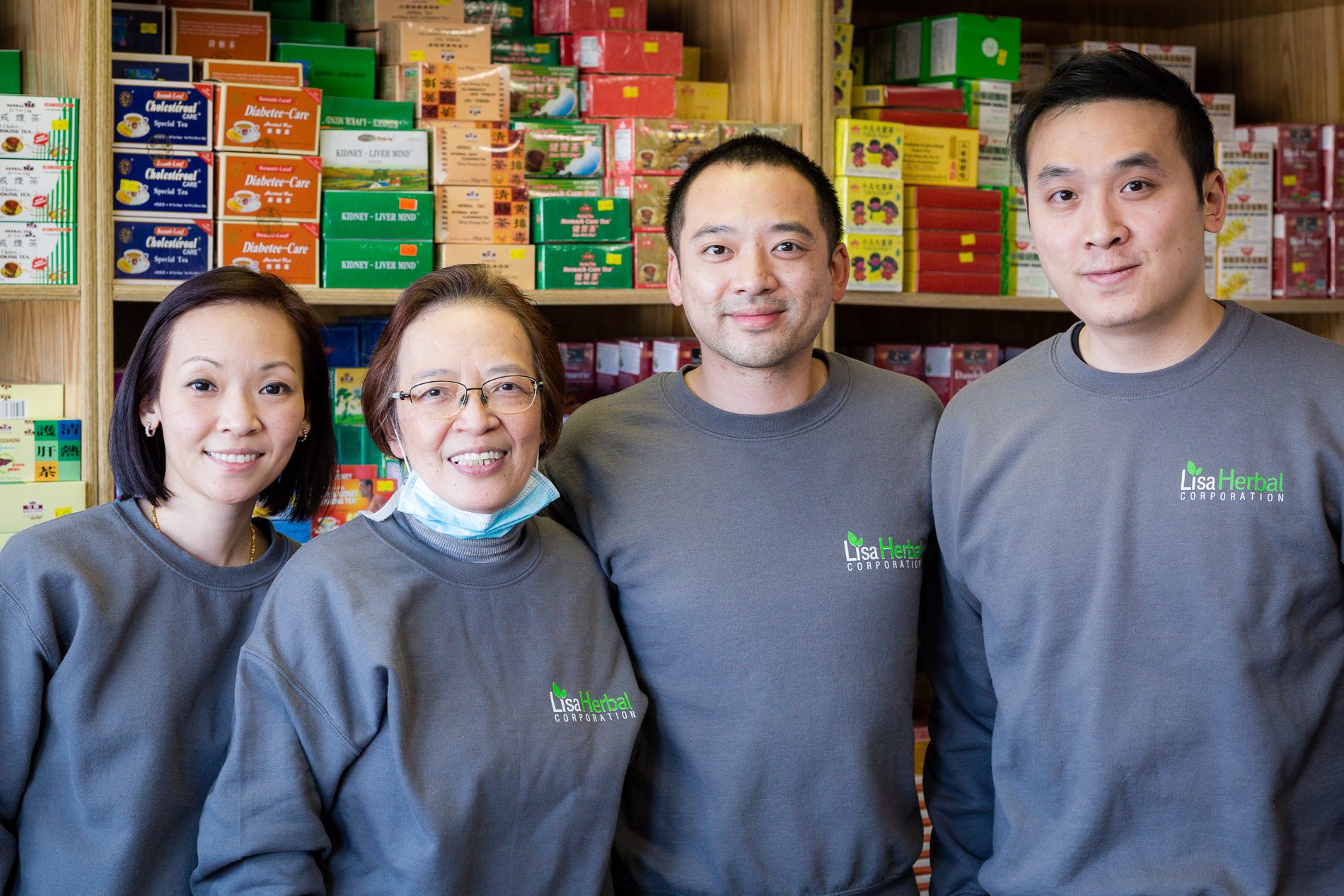
Despite the growing popularity of herbal or spiritual remedies, many people who patronize herbal stores in Chicago are still going through a lot of Western treatment, according to Lau. Stores like hers and Cruz’s offer hard-to-find herbs and supplements, but they also serve as welcoming spaces for people to ask questions, learn more about diverse treatments, and feel comfortable in their search for better health.
“When customers come to the shop, they see us as members of the community,” Lau said.

